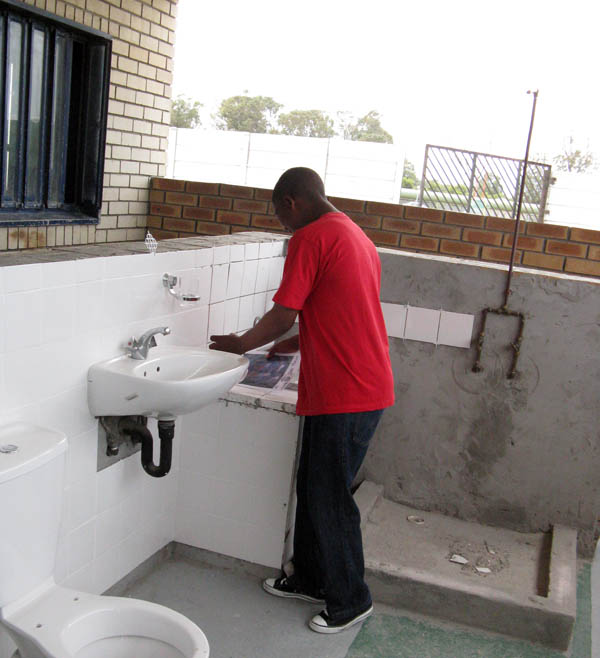DAVID BROKENSHA ~ FISH HOEK NOTES, December 2010
Political
Here are three views on our current situation.
▪ "The ANC rots from within, wracked by corruption, torn by factionalism, weighed down by its huge burden of failure .[RW Johnson]"
▪ "We are still in the morning after. I cannot emphasize strongly enough , we have had 16 years (since democratic election). That is all. 16 years. It's not even a generation and yet you, in Britain and America, have had hundreds of years of working towards democracy, and it's still not perfect; you've still got poor people, you've still got zenophobia. But we're expected to have done it in 16 years."[Nadine Gordimer]
▪ "South Africa has lots to be proud of, lots to be concerned about, in equal measure." (Mark Berger)
R W Johnson is always gloomy about South Africa's future; I share the views of the other two and I still retain an optimism -- with many reservations -- about the future of my country. So in this “edition” of FH Notes, I shall give more emphasis to the good news.
THE GOOD NEWS

¶ The World Cup, held in July 2010, was a great success, despite the horrific predictions of the British tabloids. Because everything -- well nearly everything -- went off so well, it showed what capacity South Africa has. Admittedly the rainbow nation euphoria was a temporary phenomenon, but this was impressive to experience. It also promoted South Africa throughout the world: I noticed this during my recent visits to Ghana, and to Tanzania; it seemed that almost everybody I met had watched at least part of the football on television and consequently knew a little more about South Africa- everyone now knew a little about Cape Town, and its location.

¶ Solms-Delta Winery. Last month Anne-Marie Shawe, who was visiting me from England, and I went to the inaugural lecture of my friend Professor Pumla Gobodo-Madizikela. Pumla based parts of her lecture on the story of this winery, which was first established in the late 17th century. Inspired by the lecture, we drove out ( about an hour] to the winery for Sunday lunch .The new owners have “granted a substantial shareholding to historically disadvantaged tenant workers on the estate; they have also established a museum which provides visitors with an authentic experience that does not gloss over the facts. It explores our history from all points of view, with special emphasis on personal experiences of dispossessed and of dispossessed Khoe-San, pioneer settlers, slaves, and the current resident labourers -- who remember only too well what it meant to be a farm worker in the apartheid years.“ Not only were the food and wine , and the setting, all superb, but our waiter and waitress - and indeed all the workers we met - showed a palpable pride in being part of the ownership. Solms-Delta is by no means the only South African farm to have followed this route; we found it a most encouraging and reassuring visit.
 Rico learning the plumbing trade Rico learning the plumbing trade
¶ BOSASA Horizon Youth Development Centre [a euphemism for a young offenders remand centre] held an open day earlier this month; I accompanied my friend Donald Gill ,who helps me with my computer and my writing projects . Several hundred teen aged boys, mostly apparently 16 or 17 years old ,were being held in this centre until their cases come to court, and their future is decided The open day was to encourage parents and friends of the boys to come to see how they were being helped. Donald, who has for many years been helping street children , was there to see how Rico was getting on. Rico, nearly 17, had been arrested after attempted shoplifting; he has been living on the streets of Fish Hoek since he was 11. He comes from a severely dysfunctional family with a history of substance abuse and petty crime. The formal programme included inspirational speeches, one by a former gangsta who had “found Jesus”; a group of boys did a Gum Boot dance, and another produced a short sketch; certificates were handed out to boys who had completed various courses -- in art, furniture making, plumbing, sewing, upholstery, etc.
We were then joined by Rico, who showed us around the various workshops pointing out his dormitory (12 bunk beds) and introducing us to some of the staff. When talking to Anthony, a counsellor/instructor, another boy approached and casually hugged Anthony in an affectionate manner. Throughout the morning I saw several such interactions between the boys and the staff, or simply between the boys themselves. The boys were nearly all Coloured, with a few Africans ; the institution is near a large coloured area. Rico told us that one white boy had left last week. “Was he picked on?”, we asked - apparently not. I have read so much about the degeneration of so many South African institutions – schools, hospitals, prisons, government offices - that it was a pleasant surprise to find this centre so well-run, with committed and compassionate staff. Before leaving, Donald had a constructive talk with the social worker handling Rico’s case : she was well-organised, bright, interested in the boys. Donald, who has who had many years' experience as a social worker in England, said that this centre compared favourably to similar institutions in the UK, particularly in the staff attitudes. Of course, it is not Good News that hundreds of boys are in a remand centre: this is not surprising, given the chronic housing crisis, the extent of poverty and the huge inequality that still exists in South Africa. The good news are the attitudes and professional behaviour of the staff, their easy inter-action with the boys, and their attempts to teach useful skills.
MISC ITEMS

¶ POW pals. I wrote earlier about getting in touch with two POW pals, Stan Smollan and Arthur Winter, both of whom were with me at Tarhuna (near Tripoli), our first POW camp [see Brokie’s way pp 75 to 77 - or click here ]. Recently I was interviewed by Karen Horn from Stellenbosch University who is writing her PhD dissertation on South African POWs in World War II. Karen is particularly interested in how we were affected by being a POW. Her well-constructed interview brought back many long-forgotten memories. (Bernard told me that I had an enviable facility for obliterating unpleasant memories). She put me in touch with Dick Dickinson, who was a close friend in camps both in Italy and also in Germany. I will be going next month to Mossel Bay ( a four hour drive, which I will do with David and Bill driving) to see Dick( now aged 92), who recently published his account of his wartime experiences. I have one other POW pal, Harry Mortlock, who lives at Gonubie, near East London. I find it strange that I have these four prisoner of war friends, when I have so few remaining friends from other periods in my life.. What is odd is that there are four old men ( all +/- 90) who shared some of my POW days, an experience not usually regarded as being a recipe for longevity.

¶The baboons at Cape Point, encouraged by thoughtless tourists who feed them despite many warning notices) , have become bold and cunning. They have learnt that a BEEP means that the car doors are locked. When visitors come, get out of the car, close the doors and no BEEP sounds, the baboons rush to open the doors and grab whatever they can – camera, binoculars, handbag, sweater, hat, food, drinks - all is gone in a flash. What intelligent creatures.
¶ Africa 2010 I have complied a series of photo-diaries of my African trips in 2010 which can be accessed here. |






